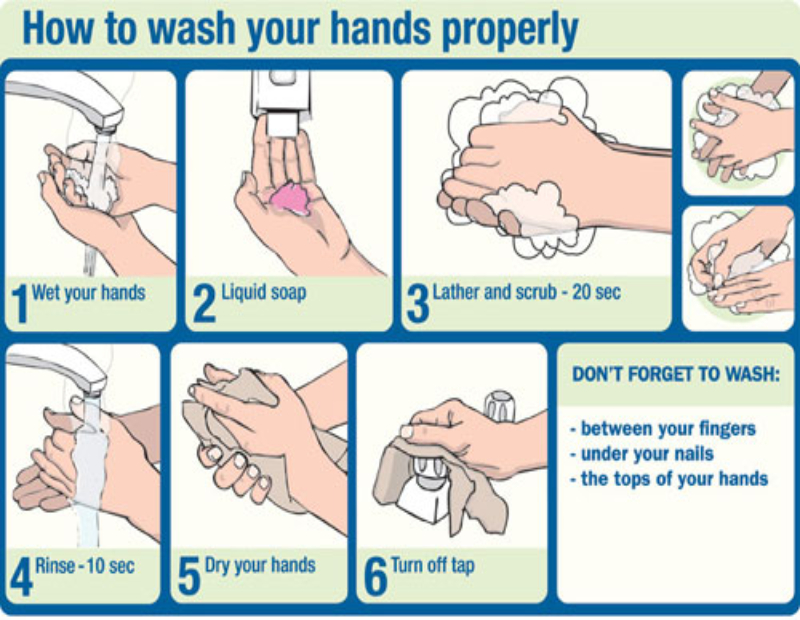The Caribbean Public Health Agency (CARPHA) is urging persons to practise good personal hygiene in order to reduce the risk of transmission of influenza and other respiratory viruses.
Influenza (flu) is a contagious respiratory illness caused mainly by two types of viruses: Influenza A and Influenza B. The Influenza A (H1N1) virus caused a pandemic in 2009. Although often referred to as “swine flu”, CARPHA has advised that this name is misleading as it is not spread by contact with pigs or pig products.
Influenza A (H1N1) is a virus that continues to circulate around the world, including the Caribbean. Typically, the flu season in the Region occurs between September to March when there is usually an increase in the number of persons coming down with the virus.
Flu is characterized by a sudden onset of high fever, cough (usually dry), headache, muscle and joint pain, severe malaise (feeling unwell), sore throat and runny nose. Most people recover from these symptoms within a week without requiring medical attention, but influenza can cause severe illness or death in people at high risk.
Dr. C. James Hospedales, CARPHA’s Executive Director, explained that the primary form of influenza transmission is through interpersonal contact. He added that large social events like carnival, festivals and concerts can create serious public health challenges because persons are often crowded together, sharing personal space and common areas.
Given elevated flu activity in the northern hemisphere, combined with the high travel season to the Caribbean, it is important that people take the necessary steps now, to protect themselves and their loved ones from the flu.
Moreover, CARPHA is urging persons to take proactive measures to reduce the risk of transmission of influenza and other respiratory viruses. “Good hygiene measures that persons can take include: covering your mouth with a tissue or handkerchief, or using your elbow, when sneezing or coughing; safely disposing of used tissues; washing your hands with soap and water for at least 20 seconds after coughing and sneezing and before and after meal preparation, eating and using the toilets. Alternatively, you may use an alcohol-based hand-sanitizer; avoiding contact with others by staying home if you are sick; cleaning and disinfecting surfaces regularly,” CARHPA has noted.
Vaccination remains the most effective way to prevent the disease, CARPHA has announced pointing out that “safe and effective vaccines have been available and used for over 60 years.” Vaccination, CARHPA added, is especially important for health workers and people at higher risk of serious influenza complications, such as the very young, pregnant women, the elderly and chronically ill persons, and for people who live with or care for high risk individuals.
Persons should contact their Ministry of Health or community health centre for more information about vaccination programmes.











